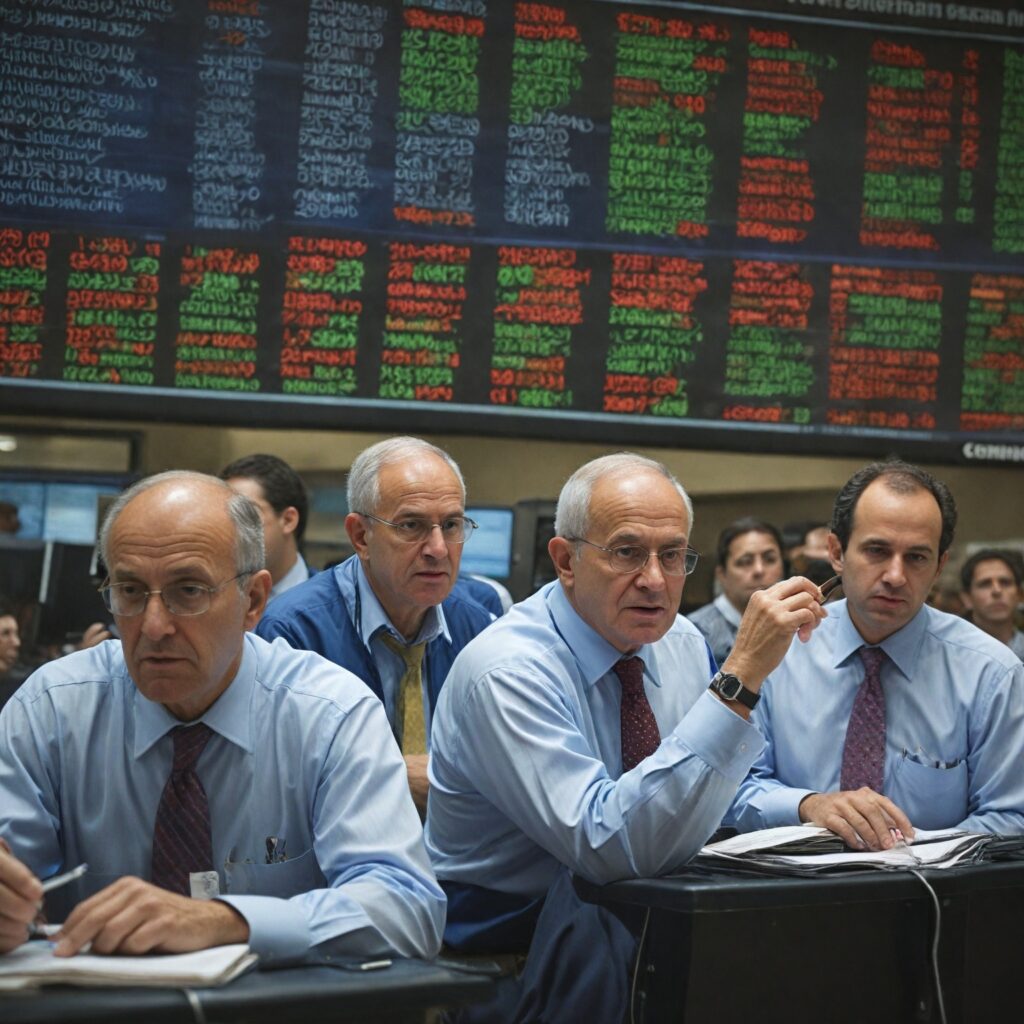
Highlights:
– Geopolitical tensions rise after Israel’s overnight strike on Iran
– Economic data shows inflation rate subside and job market softening
– AI updates drive market reactions and company-specific news
Geopolitical Tensions and Market Volatility
The week took a tumultuous turn as Israel’s strike on Iran set off a chain reaction in financial markets. The market sentiment shifted drastically due to the heightened geopolitical tensions caused by the attack on Iranian nuclear infrastructure. Stocks in the U.S., such as the S & P 500 and Nasdaq Composite, experienced a significant drop on Friday. Concurrently, the prices of Brent crude futures and West Texas Intermediate crude futures surged, reflecting uncertainties in the global oil market. Gold, often seen as a safe haven asset, soared to a two-month high as investors sought refuge amid the volatility.
The unexpected turn of events disrupted what was shaping up to be a relatively stable week for the markets, highlighting the inherent risks associated with geopolitical instability. The impact of such geopolitical events on financial markets serves as a reminder of the interconnectedness of global affairs and investment landscapes. Investors found themselves on edge as they grappled with the repercussions of the attack and its implications for broader market stability.
Economic Data Trends and Market Resilience
Amidst the geopolitical turmoil, positive economic indicators provided some reassurance to investors. Reports on inflation levels showed encouraging signs, with both the consumer price index and the producer price index indicating lower-than-expected price rises. Despite a softening labor market, characterized by unchanged weekly jobless claims and high continuing claims, the overall economic data painted a picture of moderate inflation and sustained low unemployment rates. This environment, marked by subdued inflation and stable job market conditions, bolstered consumer purchasing power and contributed to market resilience.
The economic data releases underscored the importance of closely monitoring key indicators to gauge the health of the economy and inform investment decisions. As investors digested the data, they sought to navigate a landscape shaped by both geopolitical uncertainties and economic fundamentals, balancing risk factors with potential opportunities presented by market dynamics.
The Role of AI in Driving Market Dynamics
Against the backdrop of geopolitical tensions and economic data, developments in the artificial intelligence (AI) sphere also played a pivotal role in shaping market movements. Companies within the AI race made significant strides and announcements that captured investor attention. From Apple’s subdued updates at its developer conference to Meta Platforms’ strategic investment in Scale AI, the week witnessed a flurry of AI-related activities. Nvidia’s reaffirmation of the need for increased compute capacity and Oracle’s impressive quarterly results underscored the growing relevance of AI in driving business strategies and market performance. Advanced Micro Devices’ unveiling of a new AI server chip for 2026 and its partnership with OpenAI signaled a continued push towards innovation and competition in the AI space.
The growing influence of AI technologies on various sectors highlights the evolving landscape of financial markets, where advancements in AI capabilities can drive competitive advantages and financial performance for companies. As AI continues to shape market dynamics, investors are closely monitoring developments and integrating AI-related news into their investment strategies to capitalize on emerging opportunities.
In conclusion, the week witnessed a confluence of geopolitical tensions, economic data releases, and AI advancements, each contributing to market fluctuations and investor sentiment. As stakeholders navigate these diverse factors, the interplay between global events, economic indicators, and technological innovations underscores the complexity and dynamism of today’s financial landscape. How might ongoing geopolitical developments impact market stability in the coming weeks? What role will AI advancements play in shaping future investment trends? How can investors effectively balance risk factors with market opportunities in the current scenario?
Editorial content by Sierra Knightley


















